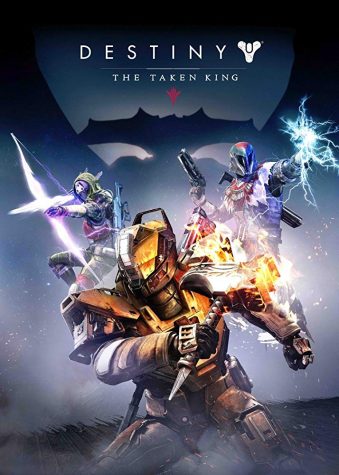Anthem: When Arrogance Leads to Misfortune
Anthem could possibly be the final blow in the fall of the Bioware empire, and major parts of the video game industry as a whole.

On Feb. 22, 2020, the multi-platform, cooperative, RPG (role-playing game) Anthem celebrated It’s one year anniversary. When first announced at E3 2017, it was treated as a godsend by many in the gaming community, and with the poor feedback with their last game Mass Effect: Andromeda, developer Bioware needed this. Many hoped that this would be the game to bring Bioware back to its Mass Effect 2 days, what many consider to be the glory days of the company.
Major review outlets and fans called it a disappointment. In IGN’s review, they described the game’s combat as, “…a bit of a disaster.” So what went wrong? Let’s head back into the Heart of Rage and see if we can’t find the problem, and what the game industry can learn from this massively expensive failure.
Production of Anthem, or should I call it its name literally days before its reveal; Beyond, began all the way back in 2012. Many meetings in those long years consisted of discussion over creature design, gameplay, and story. At the end of these meetings, nothing was really decided, they all just finished talking and left the room.
According to an article on kotaku.com, a past Bioware developer described the experience saying, “I think most people on the team felt like we didn’t know exactly what the game was or what it was supposed to be because it kept changing so much.”
What the game slowly shaped into, in part due to the lack of leadership refusing to deal with the employees concerned with the games, is a discount version of another game, 2014’s Destiny, which is a fair comparison due to the fact they both suffered from many of the same problems at the launch of each respective title.
Both were heavily criticized for their lackluster main campaigns, overall repetitive gameplay, and long loading times. For example, with Destiny, In order to know important plot points, or have any idea what characters within the game were talking about, you had to acquire a Bungie account, go onto their website, and look up the information for yourself. Each studio dealt with these criticisms in polar opposite ways.

In an article from Eurogamer, Bungie’s (developer of Destiny) president Harold Ryan, discussed how they were aware of the criticisms, especially the story based ones, and wanted to use the game’s first DLC (downloadable content) expansion, The Dark Below, as a place to address and fix these problems.
Later, with the game’s third expansion, The Taken King, it was clear with fan approval and critical success that, even though it had ‘taken’ the company around a year, Bungie seemed to have finally learned their lesson.
Upon hearing the criticism of Anthem, Bioware released a “day one patch” shortly after its release. After that, almost complete radio silence…
Then to all appearances out of nowhere, in Nov. 2019, multiple sources confirmed that Bioware still had plans to add to the seemingly dead game, with what has been referred to as “Anthem 2.0.” This plans to be a complete overhaul of the game’s current state, adding new weapons, changing gameplay, along with the main world itself. These reports were confirmed by developer Bioware in Feb. 2020, saying that it would take months for this to be released.
Further proof of Bioware’s absence from Anthem can be found with the fact that the in-game winter decorations have only now, 2 months after December, been taken out of the game.
Here, what can be learned is that when you make an online game with the intent that you’ll continuously add and update it, you have to follow through with what you said, or you lose the players’ trust. With Anthem specifically, players weren’t the only ones affected, as Bioware’s parent company Electronic Arts (EA) saw a massive drop in their stock on the day following Anthem’s release, seeing a 10.4% drop in its stock.

Anthem falls in the pile of games made by critically acclaimed companies that failed to deliver on players expectations (I’m not going to use the words, “I’m talking about Fallout 76,” but I am going to move on). The most important element that can be taken here that should be taken by other game developers, is that one misstep can lead to falling into a pit that may never be climbed out. After all, one of the biggest contributing factors into the fall of the Holy Roman Empire, was arrogance.

"This is where the fun begins." If you're a big fan of film, TV, or the world of entertainment as a whole, you've come to the right place. This will be...




